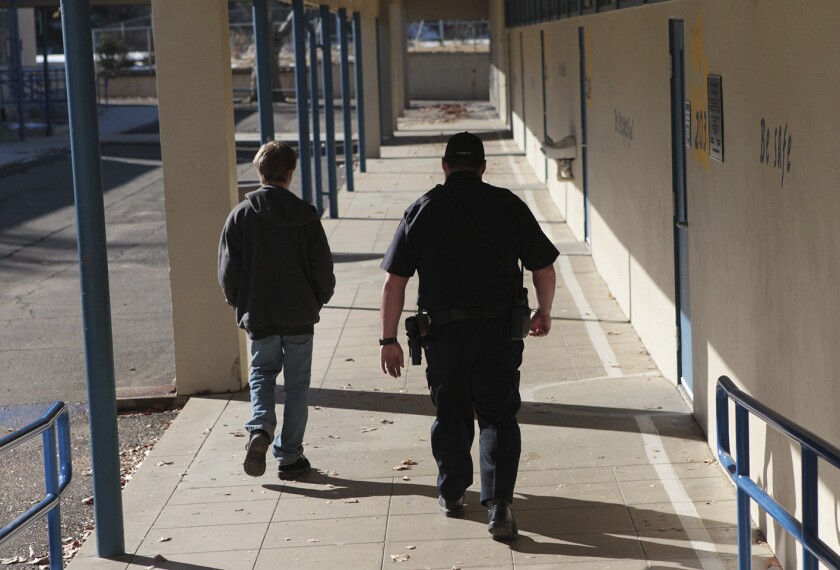National transportation leaders could soon be taking a more incisive look at what some experts have said is the most dangerous part of a student’s school day: getting on and off the school bus.
Federal lawmakers this week introduced legislation that would mandate formal data collection addressing how often people pass stopped buses—an act that’s illegal in every state, although the situations in which drivers are required to stop can vary. The data collection would also cover when and where the violations are most likely to occur and information about the drivers who pass stopped buses, according to the text of the bill, introduced by Reps. Rudy Yakym, R-Ind., and Julia Brownley, D-Calif.
That information would then be used to create a national public safety campaign about the rules of the road and the potentially deadly consequences of passing buses that are stopped to pick up or drop off students.
“We’re all a little bit dumbfounded as to why this continues to not just happen, but the numbers seem to increase every year,” said Curt Macysyn, executive director of the National School Transportation Association. “We really have to get to the heart of instilling into the minds of the motoring public that this is not OK to do.”
Collecting data about how often drivers illegally pass school buses is far from a perfect science.
Each year, the National Association of State Directors of Pupil Transportation conducts a survey in which bus drivers from across the country spend one day tallying the number of times they witness violations. There’s usually representation from most—if not all—states, and the collected data are multiplied by the number of bus drivers and days in a school year to come up with an estimated number of violations annually. The last survey estimated there were about 42 million violationsin the 2021-22 school year.
An average of about six students across the country each year were killed while attempting to board or get off of their school buses from 2012 to 2021, according to the National School Bus Loading and Unloading Survey. The number of injuries and near misses is believed to be much larger.
Macysyn and other school transportation organization leaders have said the biggest problem is that drivers are often simply unaware of the rules, so a nationwide education program could go a long way. Macysyn has said he envisions a program similar to the “click it or ticket” push begun in the 1990s that encouraged drivers and passengers to wear seat belts. The campaign is generally regarded as successful in raising awareness about seat belts’ importance.
“It really has to be a consistent and robust message, and then we hope that message resonates,” Macysyn said.
The legislation introduced by Yakym and Brownley is called the Jackie Walorski Enhancing Necessary Data on (END) Illegal School Bus Passing Act in memory of the former Indiana representative who died last year in a car crash. Walorski introduced a bill in 2019 that also addressed school bus safety and laid the groundwork for this year’s law, Yakym and Brownley said in a press release.
The END Act doesn’t call for a comprehensive, national data collection. Rather, it would rely on data collected from a representative sample of districts around the country.
The bill would require the National Highway Transportation Safety Administration to create a program with up to 12 districts across the country to formally gather data on illegal school bus passings throughout the school year. The participating districts would need to be located in a variety of geographic areas and have diverse populations. The districts would have to include at least one with an established education campaign on illegal bus passings, and at least one without such a campaign, according to the bill.
The information would be used to create the safety campaign, update education materials for driver’s education, and develop model legislation to address violations, which could include making illegally passing a stopped school bus a “moving violation,” which can carry more serious penalties, like points on a driver’s record.
“Through this legislation we can put taxpayer dollars to better use as we educate the public about the dangers of passing stopped school buses, prevent further tragedies, and save lives,” Yakym said in a statement.







